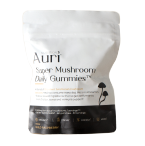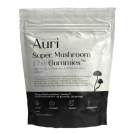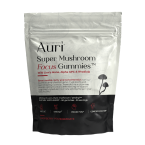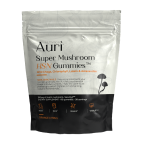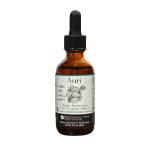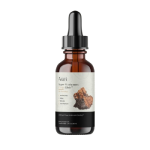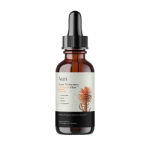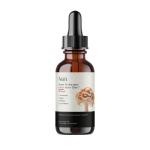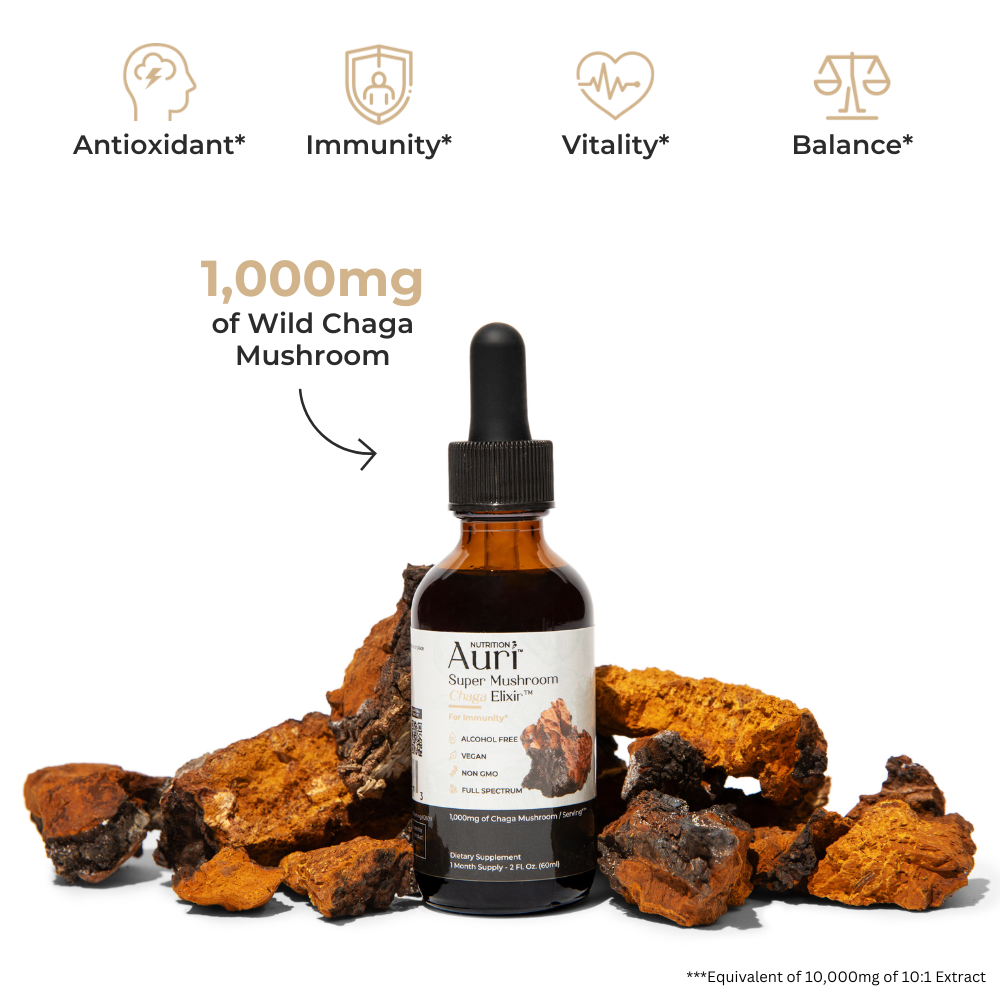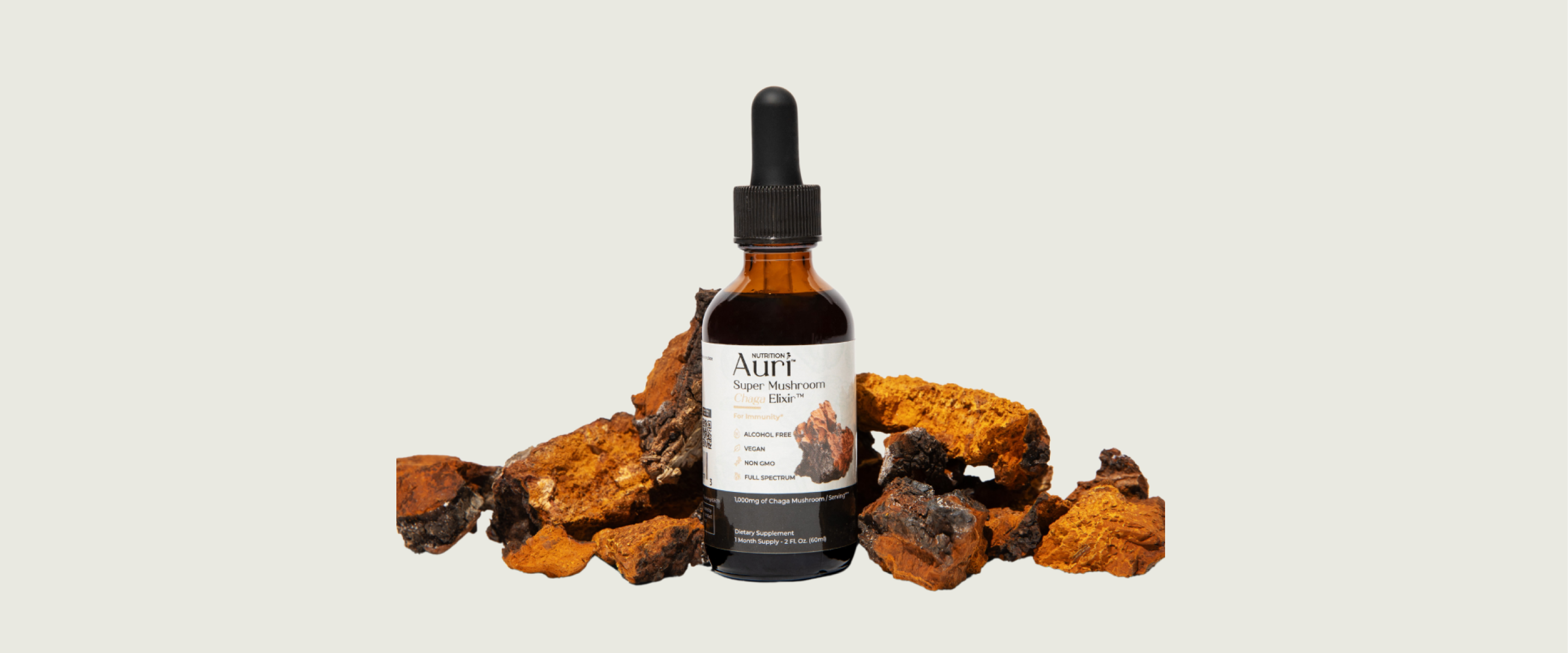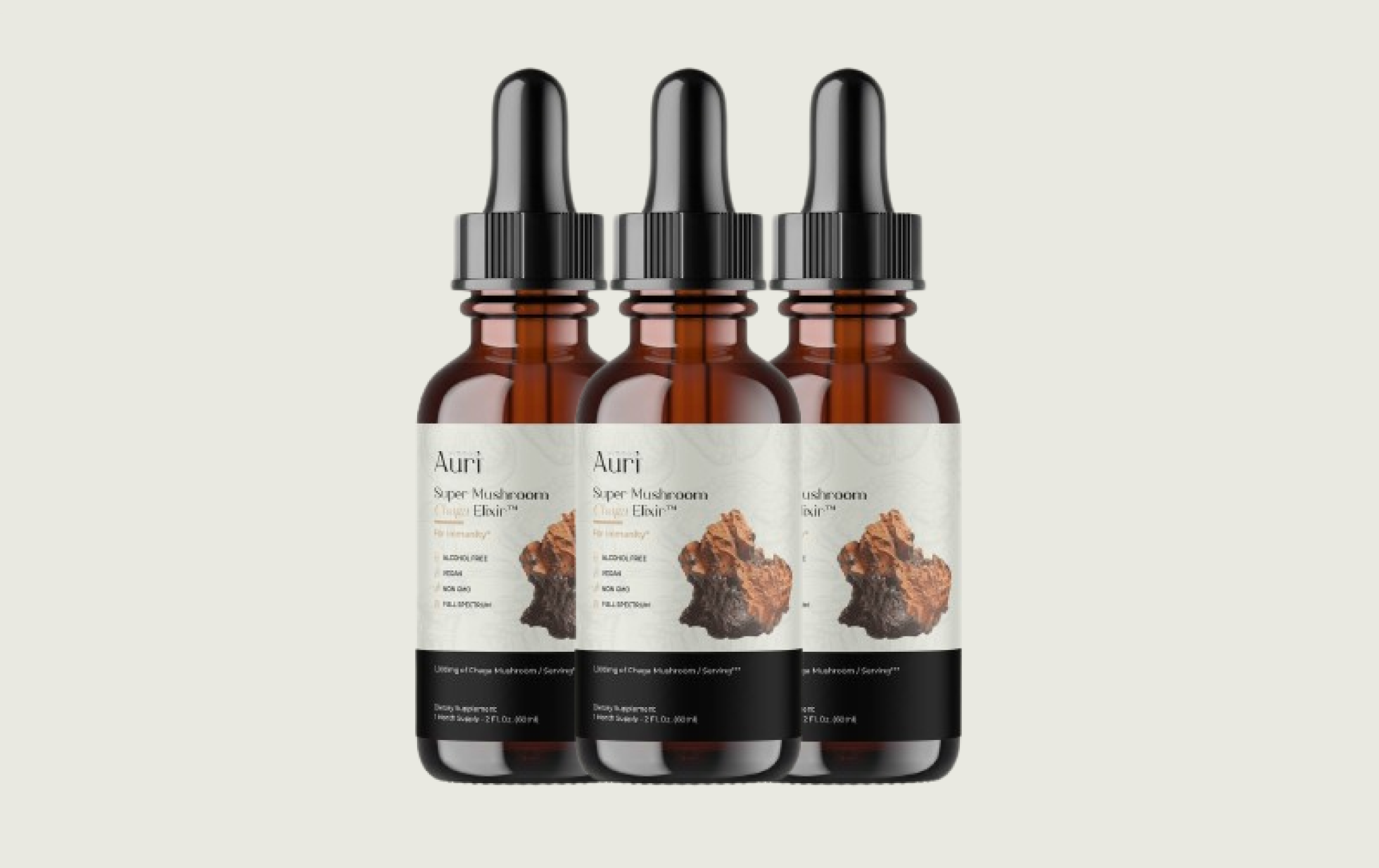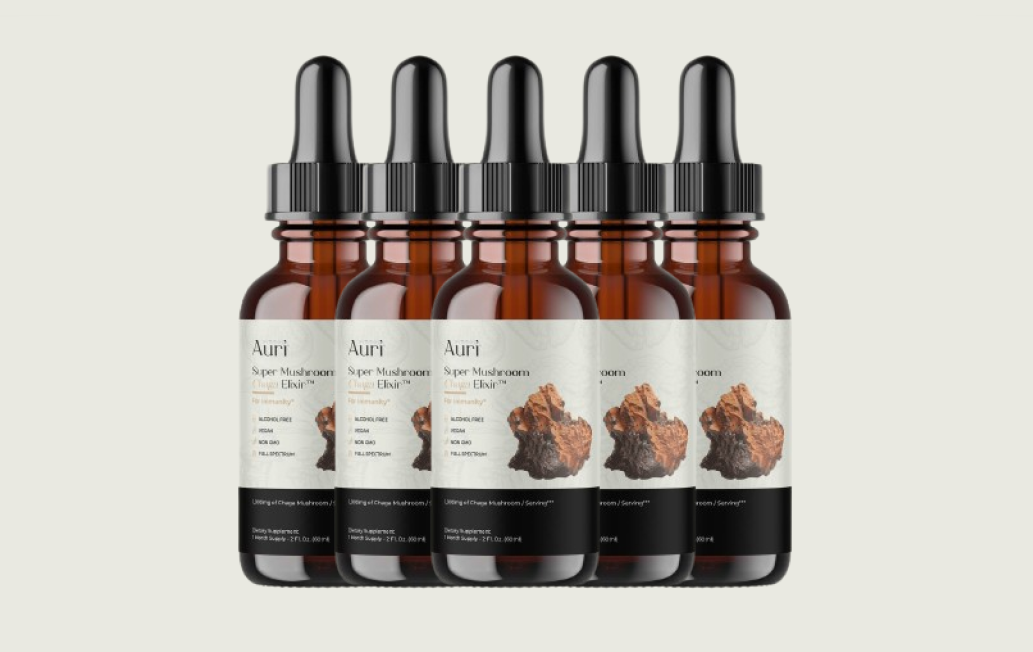Here's what you'll get:
"This Chaga Elixir is the real deal. I used to feel sluggish and was not feeling my best, but not anymore. It’s like a protective shield for my immune system. Plus, I love the energy boost without the jittery feeling you get from coffee."
🍄 Unterstützen Sie Ihre Gesundheit mit dem Super Mushroom Chaga Elixir. Erleben Sie die Kraft der Chaga-Pilze und lassen Sie jede Portion:
🛡️ Unterstützt die Immunfunktion*
🌟 Widerstehen Sie Umweltstressoren*
⚖️ Steigern Sie die zelluläre Energieproduktion*
🌱 Wohlbefinden fördern*
Tauchen Sie mit unserem Elixier in die kraftvolle Essenz von Chaga ein – Ihre täglichen Tropfen zur Unterstützung der Strapazen des Lebens. Mit diesem Extrakt ist es ein starker Verbündeter für Ihre allgemeine Gesundheit.
1.000 mg wilder Chaga / Portion
Wild Harvested Chaga
(Inonotus obliquus)
DIRECTIONS:
Draw up the recommended dosage of liquid into the dropper.
Drop two full droppers into an 8oz cup of water. For faster absorption, put two droppers under your tongue for one minute then swallow.
When will my order ship?
Once an order is placed we typically ship within 1 business day. The delivery time is typically 3-5 business days, but can be longer depending on location and circumstances.
60-DAY MONEYBACK GUARANTEE:
We stand behind our product.
100% refund valid for 60 Days on your first order, less shipping costs
No questions asked.
Simply contact us at hello@tryauri.com
-
Free Shipping On Orders $75+
-
Fast 3-5 day US delivery
-
60-day money back guarantee


Benefits
An Elixir To Become Your Best Self
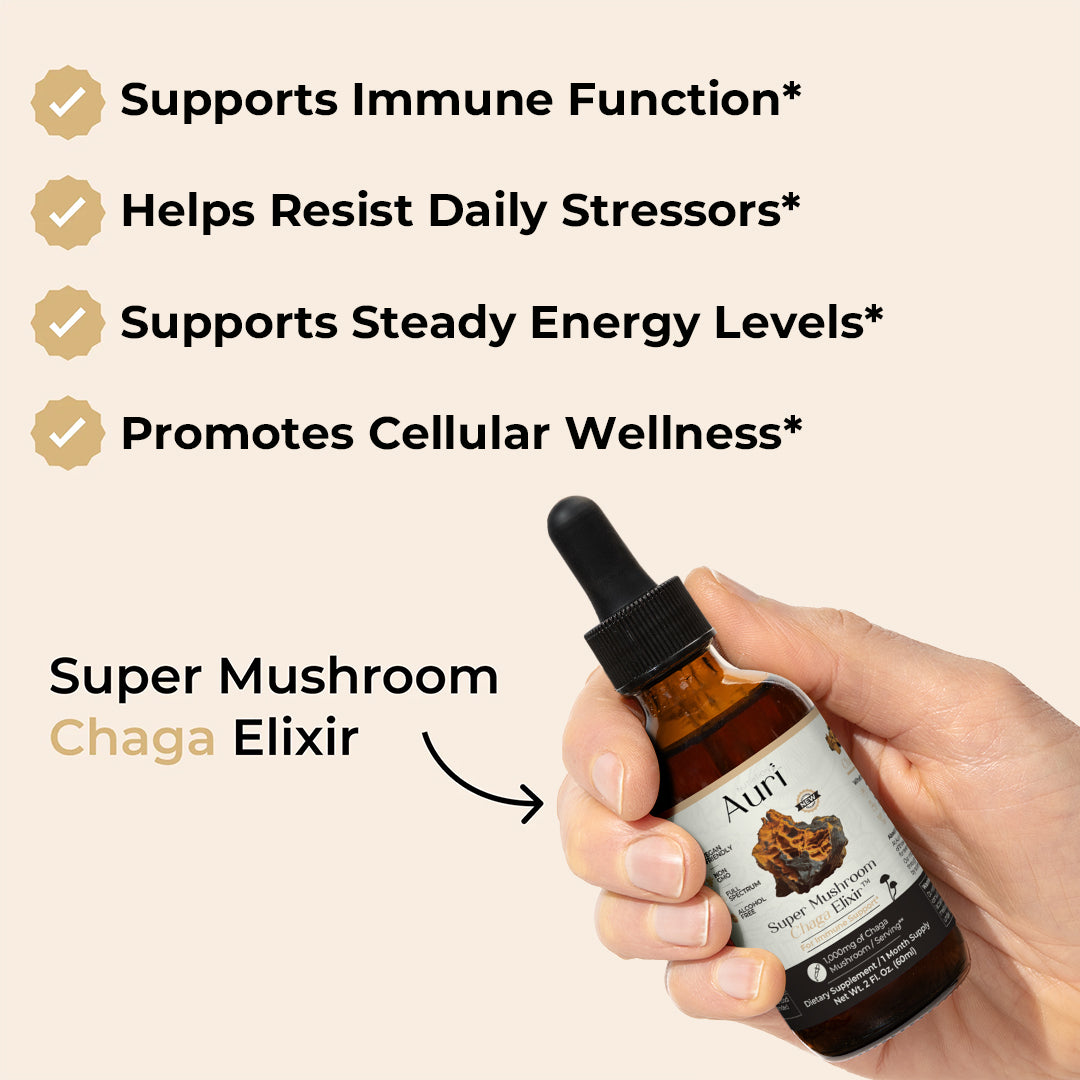

-
Support Immune Function*
Chaga mushrooms support the immune system. Their properties help strengthen the body's natural defense systems, giving you daily support for overall health. -
Resist Environmental Stressors*
Chaga mushrooms contain antioxidants, which have the ability to combat free radicals and support normal cellular resistance to oxidative stress. This means Chaga supports overall health. -
Boost Cellular Energy Production*
Chaga mushrooms support energy production in the body by boosting the efficiency of mitochondria, the powerhouses of cells, which helps enhance overall vitality and stamina.
You Deserve a Ritual that Feels Good
Skip bitter powders and hard-to-swallow capsules.
Auri Elixirs are crafted to blend into your coffee, tea, or water — smooth, delicious, and designed for your daily wellness routine.
Auri Mushroom Elixirs
Typical Liquid Supplements
Tested. Verified. Clean.
-
Verified nutrient label accuracy
-
Non-GMO (PCR tested)
-
No detectable glyphosate (<0.01 mg/kg)
-
Screened for 4 heavy metals
-
Screened for bacteria, yeast, and mold (USP <2021> compliant)


-
Alcohol Free
-
Vegan
-
Non GMO
-
Made In USA**
-
Full Spectrum
Tasty & Delicious
Mushrooms have never tasted THIS good before. Get the mushrooms you love and benefit from, without the nasty taste from powders and oils.
-
NOGMOs, gelatin, alcohol, food dyes, fillers & junk
-
YESVegan, gluten free, tastes great, real mushrooms, lab tested
Don't Take Our Word...
Loved By Thousands Around The Globe
Our Promise
-
Feels (and tastes like) clarity.
-
Crafted carefully with premium ingredients
-
Rigorously lab tested
60-Day Moneyback Guarantee
We’d be shocked if you didn’t feel the effects, and enjoy the benefits of the Super Mushroom Daily Gummies. But in the highly unlikely event that you’re not happy in any way — we’ll give you every cent back. No hassle. No hoops to jump through.
You’re protected by our 60-Day Moneyback Guarantee. Email us at hello@tryauri.com and we’ll return every dollar you paid on your first order, less shipping costs.
Bundle & Save More!
UP TO $125 OFF-

-
X90 Servings
-
$60 OFF
3-Pack Bundle ($60 off) ()Super-Pilz-Chaga-Elixier™
New Year Sale EXCLUSIVE$104.99$165.00 -
-

-
X150 SERVINGS
-
$125 OFF
5-Pack Bundle ($125 off) ()Super-Pilz-Chaga-Elixier™
New Year Sale EXCLUSIVE$149.99$275.00 -
FAQs
Use the below FAQ topics to find an answer! Still need help?
Please email us at hello@tryauri.com :)



